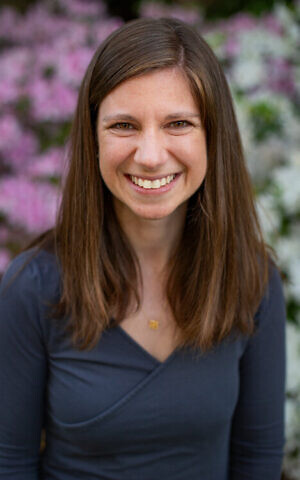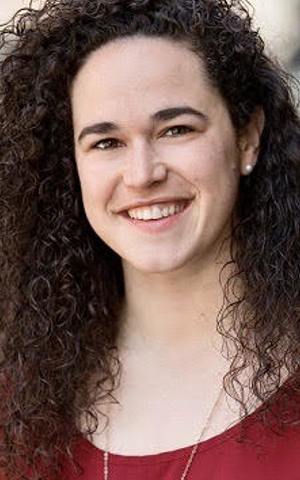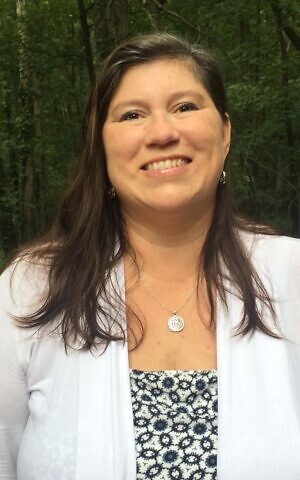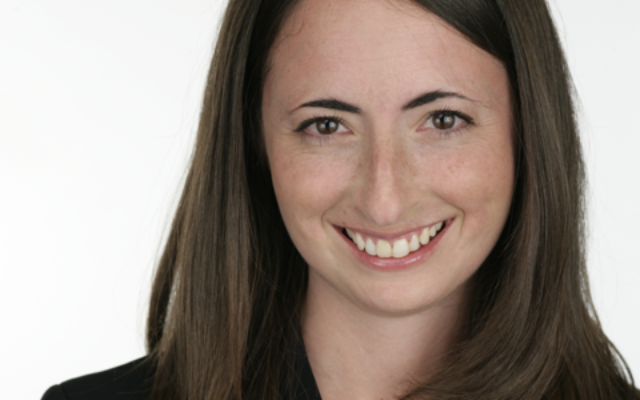Transcending Political Divides through Storytelling
Or Hadash is one of eight religious institutions in the South that have gone through training to encourage productive conversations in their communities.
In March, when six members of Congregation Or Hadash shared personal stories about moments that had shaped their political viewpoints, Rabbi Lauren Henderson was hoping those narratives might, in their telling, spark a transformation within her diverse Sandy Springs congregation.
Henderson likened today’s toxic political environment to the “intractable political conflict” that occurred 2000 years ago between the Houses of Hillel and Shammai.
In that case, so states the Talmud, a divine voice finally spoke up, saying both sides were right. But the dispute wasn’t settled until one side, the House of Hillel, chose to listen and understand the opposing viewpoint before expressing its own.
Henderson first spoke about the Talmudic story last Rosh Hashanah, setting the scene for a program she wanted to bring to Or Hadash, called Resetting the Table.

Launched in 2014, Resetting the Table is a communication skill-building program that facilitates collaborative conversations across political disagreement, including tools and exercises that leaders can replicate in their own institutions and communities.
Or Hadash is one of eight religious institutions in the South that have gone through special training to encourage productive conversations in their communities. The Jewish Community Relations Council of Atlanta and the Georgia Interfaith Public Policy Center are also part of the cohort, bringing together faith leaders across differences of ideology, denomination and race.
“We are working together on bringing clergy from rural areas of Georgia and urban areas of Georgia that have very different political points of view, to engage in a two-part program to develop more productive means of communication, networking and maybe even support over political divides,” said Leslie Anderson, executive director of JCRCA.
“The South has different dynamics about race and religion,” said Resetting the Table Founder Rabbi Melissa Weintraub. “And faith communities are an endangered species in America. There is so much ideological siloing. We have self-sorted by neighborhood, workplace and school. Faith-based communities are one of the last communities with political diversity.”

Or Hadash was chosen for the program’s Southern cohort both because Henderson had participated in one of its programs in 2017 and because “she had described the diversity in her congregation, especially its political diversity,” said Michele Freed, an Ann Arbor-based trainer with Resetting the Table who helped coach the speakers in preparing their short stories.
Henderson said she was interested in bringing Resetting the Table to her congregation because some of her congregants had said that they couldn’t sleep at night due to the political polarization in the community. Some storytellers volunteered while others were personally asked to contribute.
“I wasn’t categorizing people by red or blue and the stories all transcended those labels,” Henderson told the AJT. “One spoke about anti-Semitism, one about race and one about Communism and all were very moving. When you have structure at an event like this, it’s easier” to share one’s story. “There’s a tendency for us to dismantle facts, but narratives transcend the facts.”
The goal of Resetting the Table, which launched with the storytelling initiative but will include two more programs, one in April and one in May, is “to build a sense of family connection with each other. A bondedness as a congregation,” said Henderson.
Each speaker was asked to share a personal epiphany or insight that served to shape them. They were trained as a group and then in one-on-one meetings with a trainer to help them prepare their stories.

According to one of the storytellers, Anne Greenbaum, “Michele Freed was a great coach. She advised me on small but significant features in my story: clarifying the setting and clearly naming/identifying the people in the story. Most importantly, she got me to focus on why I wanted to share this particular story. I thought that I had the reason clear in my head and that I had made it clear in my telling, but Michele was actually right. There was indeed much more for me to reflect upon and more for me to share. When I later received feedback from a few people in the audience, I was gratified to learn that my storytelling and my experience were appreciated.”
One speaker, who did not want to be identified, said he was hesitant to share his story, but that he appreciated “Rabbi Lauren wanting to bring people together to listen to different points of view. As a conservative, I know I am taking a risk.”
Another, Howard Maziar, said he was surprised at how emotional he became when sharing his story of growing up in Atlanta with racism that strongly affected him.
He shared the story of how he became a doctor after being horrified when, as a 16-year-old, he witnessed his beloved family maid, who helped to raise him, be denied healthcare in an emergency room due to her race.
“Storytelling is a skill that can be taught,” he said. “I got a glimpse of that. That’s what Resetting the Table helped me do. I think this could have long-term impact. We don’t really know each other’s stories.”
A relative newcomer to Or Hadash, Joshua Margolis shared a pivotal moment that occurred to him in the wake of 9/11. “I see how polarized we are today,” he said, adding that he thinks Resetting the Table “will bring congregants together.”
According to Weintraub, “stories help us be known to others.” She sees storytelling as a way of building scaffolding, a way into the conversation. “Storytelling is a gateway. It takes time to build a container for people to feel safe enough to confront their differences. It doesn’t happen in 15 minutes.”
Although the program started with a focus on diversity in opinions about Israel, after the 2016 election, it broadened to address political differences in the U.S. as well. “This problem is too urgent to rush,” she suggested. “We need to slow down to see each other.”




comments